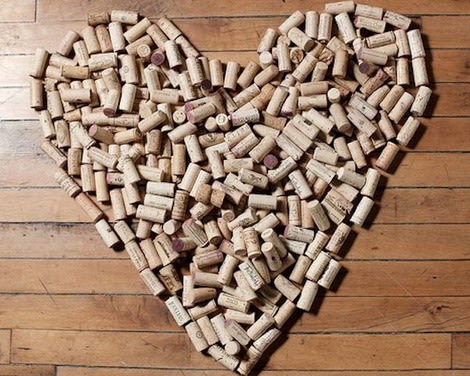Your Relationship With Alcohol
ʻYou never know what is enough unless you know what is more than enoughʼ
-William Blake (from The Marriage of Heaven and Hell)
Alcohol use is everywhere in our society. It’s socially sanctioned, easily available and a part of many social gatherings, particularly those starting after 5pm. Many folks drink to wind down an edge of stress from their day or as a conversational lubricant when gathering with friends. This is normal, it has wide societal support and people can and do continue their drinking patterns for years without adverse reactions. For them, drinking is part of their world, seldom given much consideration, a routine part of life. Good! We might call that an unentangled relationship.
Relationships of any kind come in many shapes and forms and they change over time. Drinking may have started for you as something you simply did, but over time become something of a silent partner. As time passes, this relationship develops and deepens but still may not feel like a relationship. It’s not like a being you’re interacting with, of course, but it sure may be talking at you. The question is: are you listening?
Alcohol may be a casual friend that you use to relax, unwind or ease into social situations? It may be something you do consistently, maybe alone, to get to some desired emotional state or to avoid other ones. Your relationship may be one where you start drinking and before you know it, you’re either drunk, embarrassed or behaving badly. You may start to lose confidence in yourself and your ability to make good choices for yourself. When drinking has progressed to that state, people are presented with a whole realm of questions, many highly charged, with no easy answers. Can they drink at all? What would moderating their drinking mean? ‘I don’t have a problem with my drinking but (fill in the blank) has a problem with it.’ For these people, alcohol is something they’re having a relationship with and that relationship is taking up a whole lot more space than they may think it’s taking. Relationships with alcohol can be ones in which it seems habit alone starts the drinking and it continues until……….numbness or blackout keeps you from knowing anything more about it.
What parts of yourself are involved here? Some addiction writers talk about The Addict as that part of the self making excuses, promising to do better, lying, being untrustworthy and either denying that there’s a problem or promising to make changes and then doesn’t. The Addict can’t be trusted and can’t be reasoned with. But I think it’s more complex than that. For any person with a problematic relationship with alcohol, there’s at least 3 self-parts operating: a part that feels pain, awkwardness, or anxiety. This part may drink to enhance positive states while avoiding others. There is usually a second part that is adept at squelching pain, discomfort or avoiding it with the firefighting protection of alcohol. Finally there’s the part that’s left confused, flummoxed, uneasy; how did we get here again?
Change doesn’t come all at once and it’s not linear…….it comes in forward steps, of fluster, falling down, renewed determination, consolidation. Alcohol’s influence on us has 3 components: the chemical and biologic action of the substance itself (the drug), the external environmental conditions the drinker is in (the setting) and the unique psychological make-up of the user at the time of use (the set). All 3 interact together to form the full response of alcohol use. Blaming a drug for your problems is missing the point. It’s in the combination of factors, conditions and their interactions together that fully show us our relationship with alcohol. Blaming yourself also doesn’t help much since the guilt and shame involved in doing so blinds us from soberly seeing all the moving pieces at play and the choice points involved at every step of the way.
What’s the feeling you have about your alcohol use? Is it a trust-worthy friend, a 5 o ‘clock de-escalator (they don’t call it happy hour for nothing), are you worried about it’s power over you or are you numb to it all? Do you find yourself in a cycle (or cycles) of resolving to make something different, falling back into unhealthy drinking with behavior problems underlining the unhealthy part? Do you feel your use is unhealthy or have other people told you something’s got to change. Is the phrase ‘get a handle on things’ relevant to you?
Relationships vary in terms of intensity, the values we place on them and the ways in which they consume us and so does a relationship with alcohol. It isn’t marked by sharp demarkation lines (though that would sure make it easier) but rather run together, aren’t always clear and differ for each person. What would happen if one – or more – of the conditions involved in your drinking patterns changed or was taken out of the picture? Conditions may be internal states, of feeling, of memory or something external in our immediate environment impacting us to degrees we react to or avert ourselves from.
Asking whether you have a problematic relationship with alcohol takes courage; asking may elicit another part of yourself, a part that wants help. That part doesn’t need to be big and it usually isn’t at first. All that’s really needed is an element of focus and curiosity: what is this about for me and what’s really at play here?
Relationships change; they can be molded and shaped when we bring our best efforts and focus to them. What fits the best for us? Are we running the relationship or is it running us? With the latter, there’s less room to move, fewer clear options. Left unexamined, alcohol mis-use stops being a relationship so much as it becomes a habit. Then we’ve lost our power to choose and the relationship itself simply becomes a problem.

